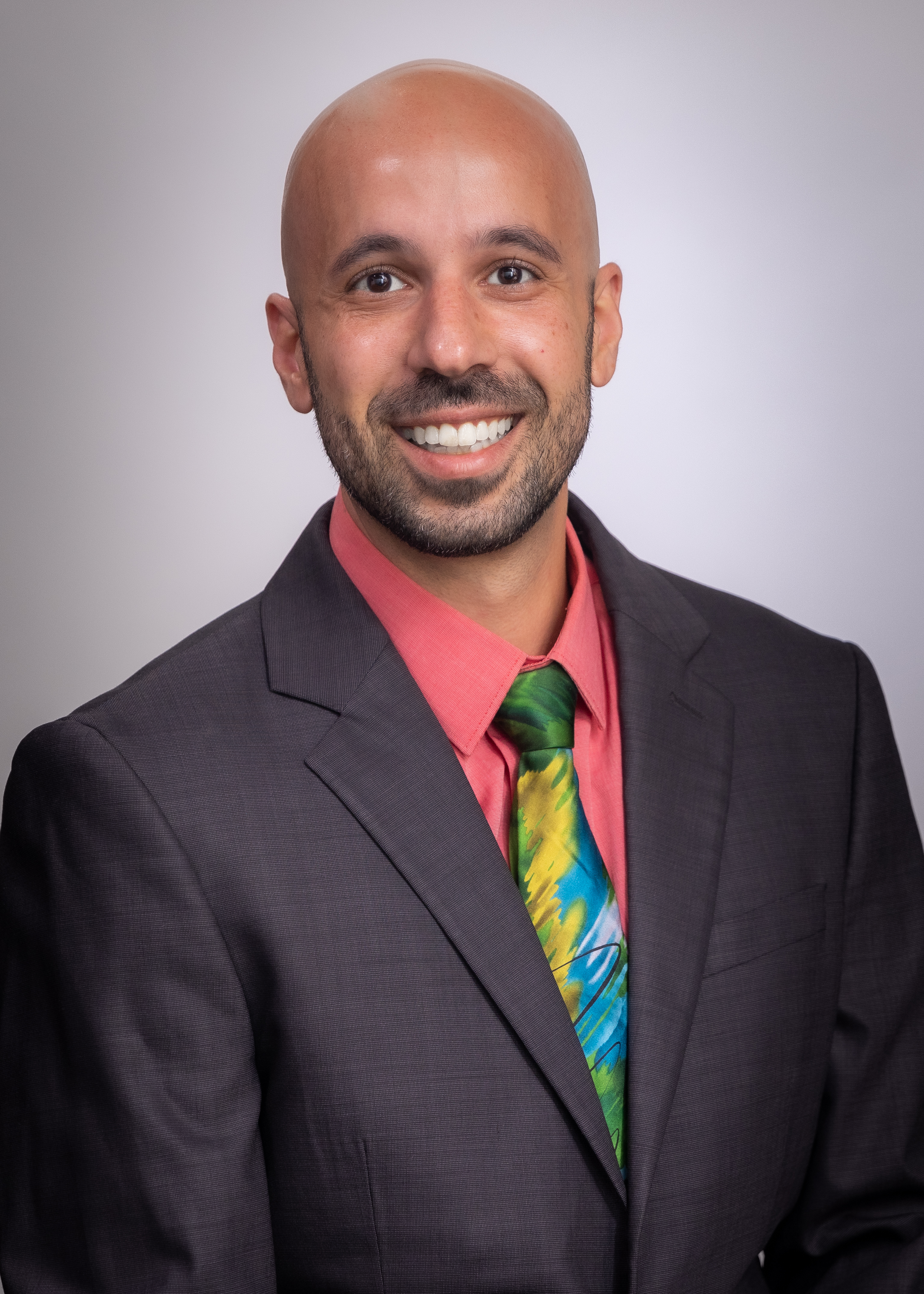
UNM fellows get to see the impact they can have as forensic psychologists, with people and with policy. The gorgeous landscape, cultural diversity, & affordable cost of living of New Mexico also sets up our fellows to enjoy life in and out of work. It’s a great training opportunity with a great set of people!

As a UNM fellow, I was encouraged to think about the intersection of law and psychology in a holistic way. It was so gratifying to be able to reflect on the issues I encountered, while assessing defendants in real time, to affect relevant change on the policy side. I also gained deeper understanding of the unique and diverse needs of the populations we serve. Thanks to the training and my excellent supervisors, by the end of the fellowship I felt fully prepared to step into my professional role as a forensic psychologist.
UNM forensic fellows train in different settings with a diverse set of people, developing an expansive set of forensic skills along the way. Fellows on the Adult Forensic Track will conduct court-ordered competency evaluations for the New Mexico Second Judicial District Court (SJDC) Competency Clinic, which involve clinical and forensic interviews; administering, scoring, and interpreting psychological measures; authoring forensic evaluation reports; providing testimony and/or recommendations in court cases and hearings; and providing peer consultation/supervision. Additional clinical training in evaluations addressing police academy suitability, psychological fitness for duty, civil disability, additional legal competencies, and other psycholegal questions (spanning a diverse landscape of New Mexico jurisdictions) may be available. Fellows on the adult forensic track may also receive training in youth forensic evaluation offering services in the youth forensic track.
Fellows on the Youth Forensic Track will conduct juvenile competency evaluations for the Children, Youth, and Families Department of the State of New Mexico. These evaluations involve clinical and forensic interviews; administering, scoring, and interpreting psychological measures; engaging with parents/caregivers; authoring forensic evaluation reports; providing testimony and/or recommendations in court cases and hearings; and providing peer consultation/supervision. Additional clinical training in youth-related forensic issues addressing amenability to treatment, risk assessment and sentencing considerations (“mitigation evaluations”), and other psycholegal issues affecting legally involved youth may be available. Fellows on the youth forensic track may also receive training in adult forensic evaluation offering services in the adult forensic track.
Because of unique forensic statutes and infrastructure of New Mexico, forensic fellows can expect advanced training in malingering assessment, forensic assessment measures, cultural conceptualization, and complex forensic conceptualization skills that will prepare them for board certification.
Fellows also have the unique opportunity to directly contribute to forensic policy advocacy and change with the New Mexico’s Behavioral Health Services Division of Health and Human Services (BHSD). Through conducting policy analysis; participating on state policy commissions (e.g., the Sentencing Commission Legislative Committee); consulting on forensic policy-related issues with BHSD administration; and collaborating with state legislators, judges, attorneys, community program directors, and others, fellows gain unique experience working in and improving our forensic mental health system. Collaboration with our forensic research faculty and additional contribution to ongoing forensic policy initiatives with the Behavioral Health Services Division and other state agencies may also be arranged.
Click here for more information about the fellowship in our brochure!
Our 2025-2026 brochure will be available soon.
Get more details about the program, living and working in Albuquerque, and the expert, multidisciplinary faculty you’ll be working with.
Salary for the fellowship year is determined according to NIH guidelines. For FY 2024 the base stipend is $61,008.00 plus benefits (PTO, sick time, medical insurance, etc.), depending on experience. We will update with the FY 2025 figures as soon as we receive them. Fellows also receive a professional development that covers expenses related to the EPPP exam, attaining licensure in New Mexico (e.g., licensure application fees), and attending the American Psychology-Law Society Conference.
The Fellowship represents a 12-month commitment with a start date in September 2025 (typically as early in September as possible). Commencement and termination date are somewhat flexible based on individual circumstances. For the 2025-2026 training year, we will hire up to three forensic postdoctoral fellows (up to two in the adult forensic track, up to one in the youth track).
Post Doctoral Fellowship Policy—Read First
Additional Information about Postdoctoral Fellowships at UNM
Fellows attend University of New Mexico’s widely acclaimed Law & Mental Health Didactic Series. The series is taught by internationally recognized experts in mental health and law and covers a breadth of topics in forensic assessment, forensic ethics, diversity-related issues in forensic practice, forensic rehabilitation, and more. The series is attended by hundreds of professionals and trainees in behavioral health, medicine, social work, and law each week and serves as didactic training for many residencies and internships outside of UNM. Fellows will also present in this series and be introduced to our international audience during the fellowship year!
Additional Educational Training
Fellows also receive direct didactic training weekly with UNM forensic faculty. The curriculum is developed with the ABFP board certification examination in mind to prepare fellows as experts in forensic case law, practice, ethical, and cultural issues. Fellows also serve as an expert witness in a simulated trial using an evaluation completed during fellowship. The supervisor for the case works with you and the retaining attorney to prepare you for direct examination, and another forensic psychologist works with the opposing attorney to develop cross examination questions. This experience helps fellows prepare to be an effective expert witness and discuss their clinical work in an adversarial courtroom.
UNM Forensic Division Faculty
Anthony Perillo, PhD
Forensic Training Director
Division of Forensic Behavioral Sciences
Associate Professor, Department of Psychiatry and Behavioral Sciences
Caroline Bonham, MD
Vice Chair, Community Behavioral Health Policy
Professor, Department of Psychiatry and Behavioral Sciences
Cassie Brown, PhD
Research Assistant Professor, Department of Psychiatry and Behavioral Sciences
Kaisa Marshall, PhD
Research Assistant Professor, Department of Psychiatry and Behavioral Sciences
Randy Otto, PhD, ABPP (Forensic, Clinical)
Chief, Division of Forensic Behavioral Sciences (incoming Spring 2025)
Department of Psychiatry and Behavioral Sciences
Jennifer Perillo, PhD
Associate Professor, Department of Psychiatry and Behavioral Sciences
Olivia Shadid, MD
Assistant Professor, Department of Psychiatry and Behavioral Sciences
Megan Shedd, MD, MPH
Forensic Psychiatrist, Visiting Instructor, Department of Psychiatry and Behavioral Sciences
Jeffrey N. Younggren, PhD, ABPP (Clinical)
Fellowship Co-Director
Fellow, American Psychological Association; Distinguished Member, National Academy of Practice
Clinical Professor, Department of Psychiatry and Behavioral Sciences
Affiliate Faculty
Julie M. Brovko, PhD
Co-Director, Second Judicial District Court Competency Clinic Clinical
Assistant Professor, Department of Psychiatry and Behavioral Sciences
Anita Mesa, LCSW
Deputy Director, Behavioral Health Services Division, State of New Mexico
Alenna Padilla, BA
Forensic Program Coordinator, Behavioral Health Services Division, State of New Mexico
Simone Viljoen, PhD
Co-Director, Second Judicial District Court Competency Clinic
Clinical Assistant Professor, Department of Psychiatry and Behavioral Sciences
Our previous Fellows have gone on to do incredible work in the field of forensic psychology.
Here’s what they’ve done after their UNM fellowship:
2019 - 2021 Alexander Kuhl, PsyD, Kuhl Clinical & Forensic Psychological Services, LLC, Las Vegas, NV
2020 - 2021 Bronwyn Neeser, PsyD, Forensic Policy Program Manager, Behavioral Health Services Division (BHSD), State of New Mexico
2021 - 2022 Emma Hamilton, PhD, Clinical Assistant Professor, Department of Psychiatry and the Behavioral Services, University of Southern California
2021 - 2022 Tatiana Matlasz, Ph.D., Research Assistant Professor, Department of Psychiatry and Behavioral Services, University of New Mexico
2022 - 2023 Anna Feinman, Ph.D., Research Assistant Professor, Medical University of South Carolina
2022 - 2023 Unnati Patel, PhD, Forensic Psychologist, Youth Forensic Psychiatric Services, Vancouver BC
2023 - 2024 Cassie Brown, PhD, Research Assistant Professor, Department of Psychiatry and Behavioral Services, University of New Mexico
Application Qualifications
Demonstrate the following minimum qualifications:
Other highly regarded qualifications:
Our fellowship team is committed to increasing diversity among healthcare professionals and leaders in New Mexico.
How to Apply
Email the following materials to Anthony Perillo, Ph.D., Fellowship Training Director (APerillo@salud.unm.edu) by December 31, 2024:
Interviews for the 2025-2026 fellowship positions will all be conducted remotely (Zoom). Interview offers will be made in mid-January and scheduled for late January 2025.
Check out our educational offerings for trainees, providers, and the public including Grand Rounds, Law and Mental Health, webinars with CEUs/CMEs, and more

Visit the state’s wonderful tourism website for stories and videos about living in the Land of Enchantment
Training Director
Anthony Perillo, PhD
Psychiatry and Behavioral Sciences
2400 Tucker Avenue N.E
1 University of New Mexico
MSC09-5030
Albuquerque, NM 87131